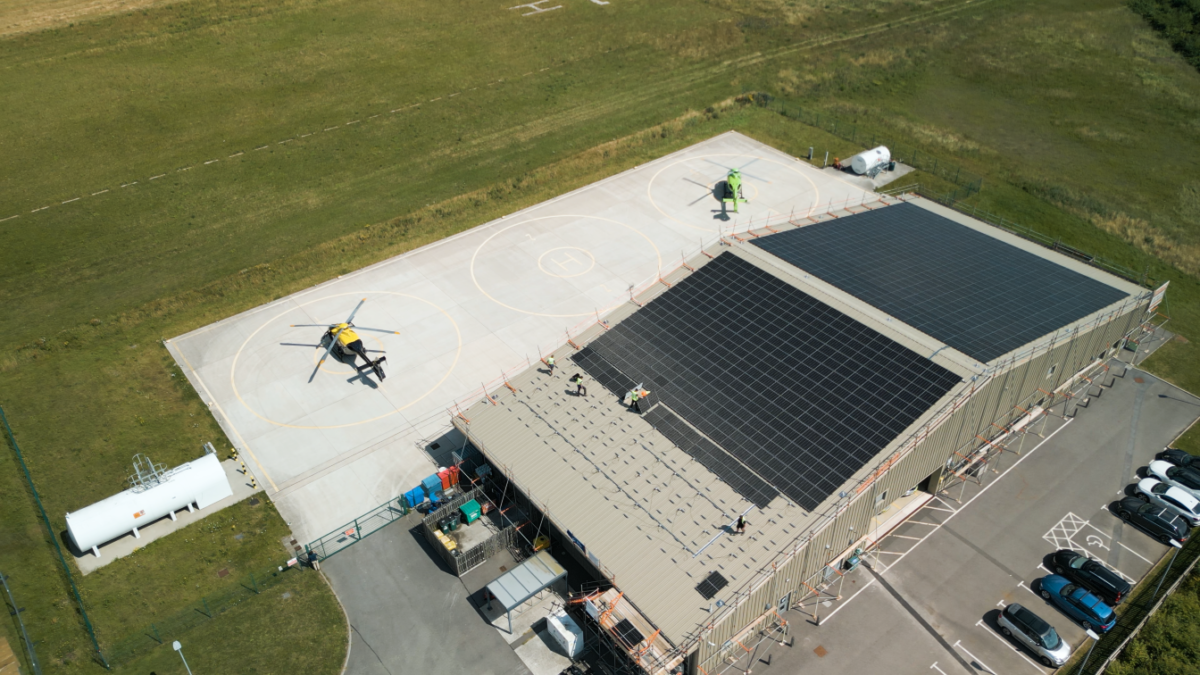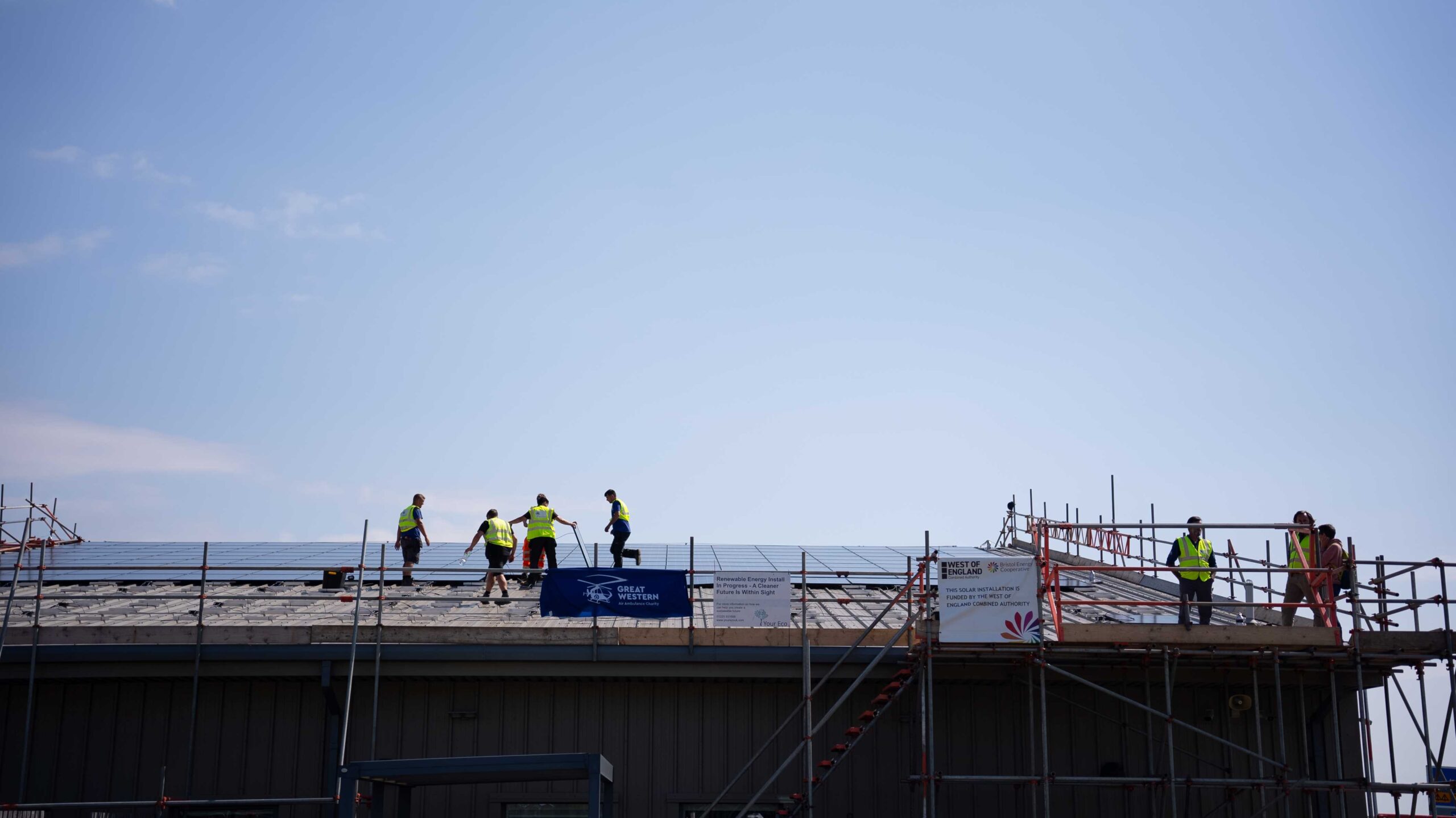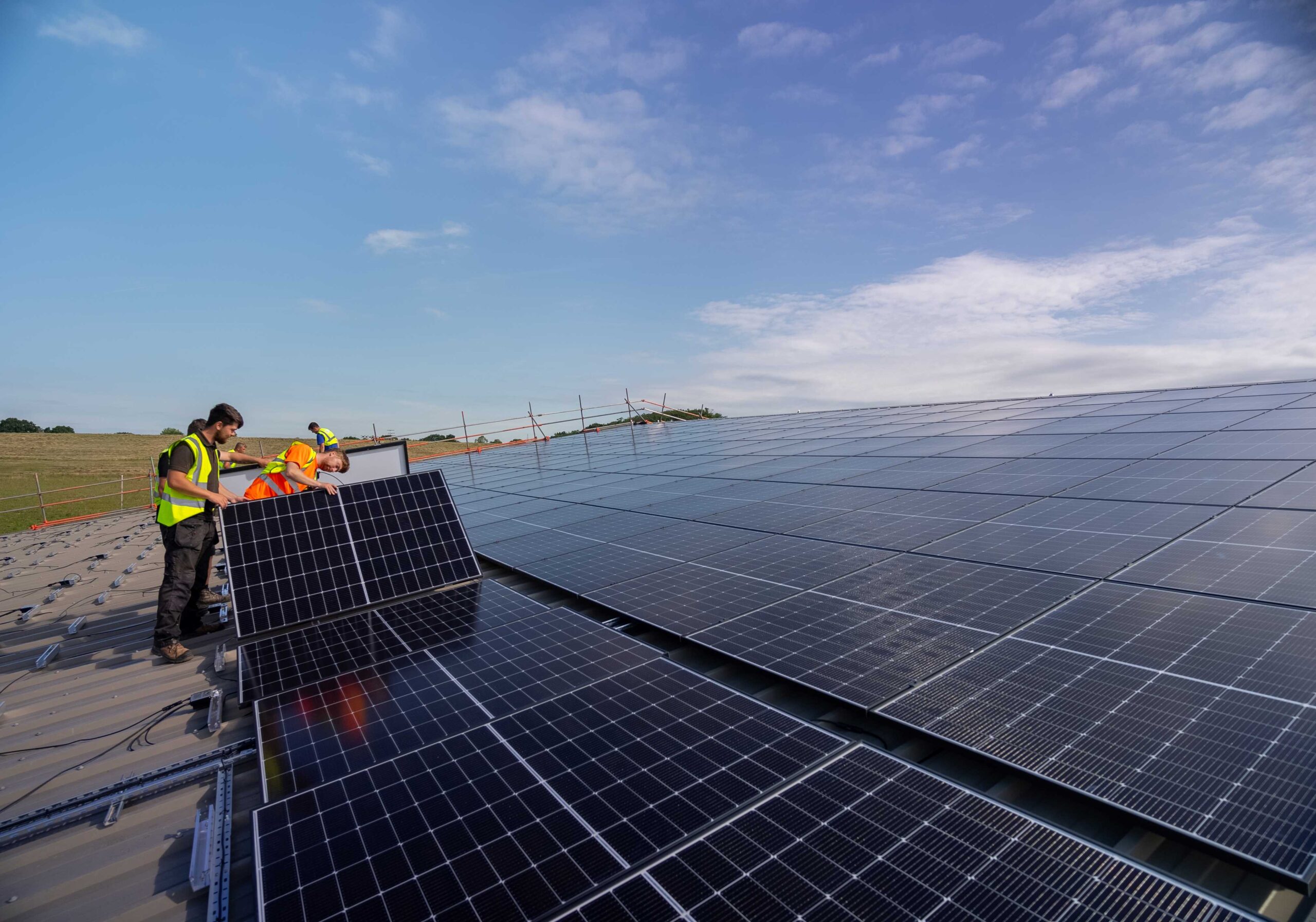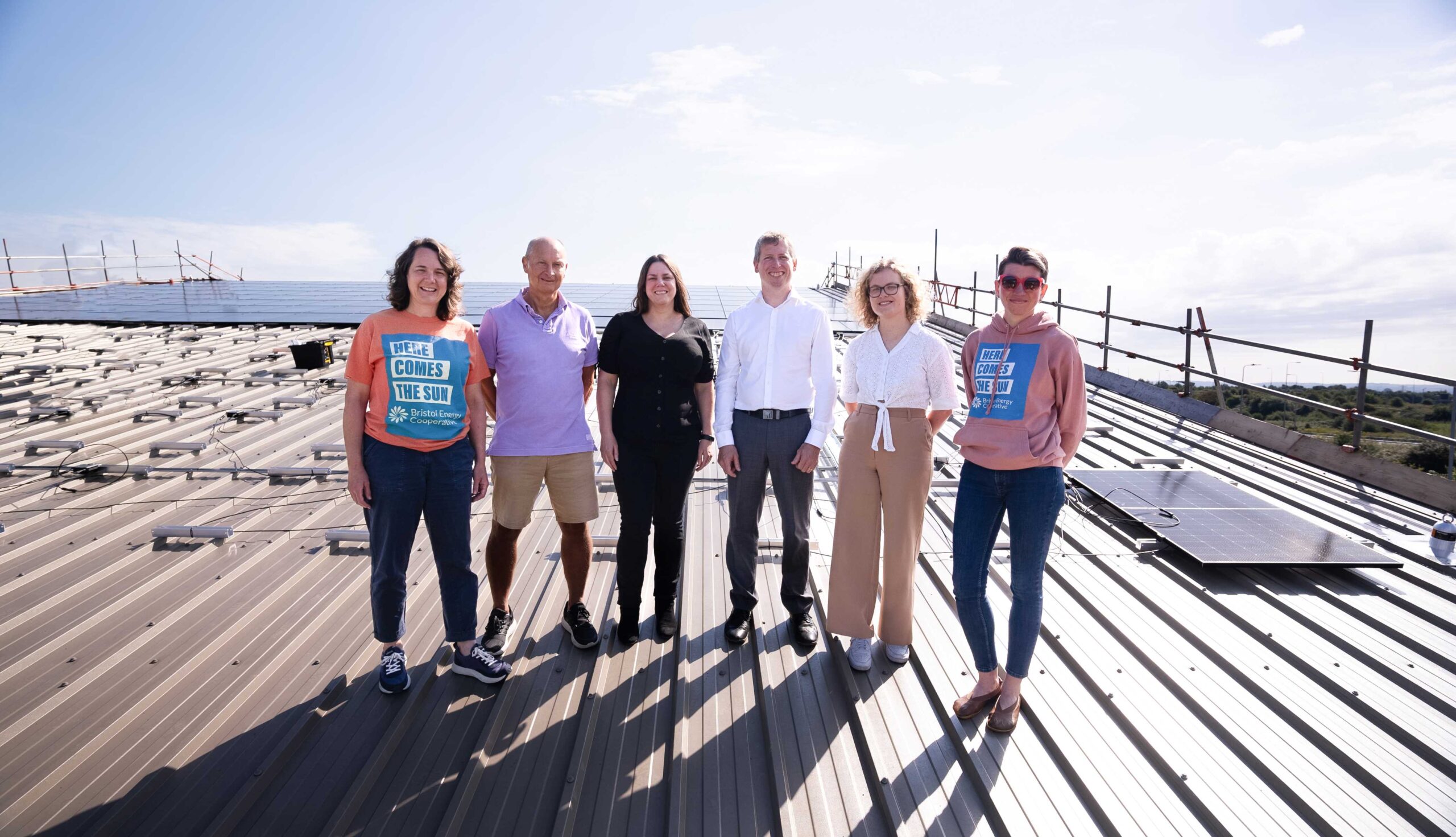
Claire’s Story
July 19, 2024
GWAAC shortlisted in two categories for Air Ambulances UK Awards of Excellence
September 20, 2024If you’ve driven past Great Western Air Ambulance Charity’s (GWAAC) airbase in Almondsbury recently, you may have noticed a shiny new addition to our airbase roof.
Our new solar panels cover nearly the whole surface area of the roof and will help us save on energy costs whilst reducing our CO2 emissions. The rooftop solar array is forecast to produce over 200,000 kilowatt hours per year - enough to power 63 homes or 20 million cups of tea! Power will be fed back to the local grid and the solar panels will save nearly 240 tonnes of CO2 over the project’s lifetime, helping us to meet our ambitious target of being carbon neutral by 2030.
“Being a sustainable organisation, in all senses of the word, is so important to all of us at Great Western Air Ambulance Charity. We are delighted to be able to do our bit for the environment in partnership with some brilliant local organisations. The rooftop solar panels not only help generate renewable energy, they also bring down our running costs, meaning ultimately more lives can be saved.”
Anna Perry, CEO, Great Western Air Ambulance Charity
Why cutting energy costs will help patients
Our annual energy bills will be cut by around £7,500 which means we can use the money we save on energy to help more people in urgent need of lifesaving care. Something that is very much needed as call-outs continue to increase year-on-year.
In the first six months of 2024, the Critical Care Team was called out to 1,159 incidents, an increase of around 21% compared to the same period last year.
In 2022, our specialist crew helped Keith Wilson at the side of a football pitch when he suffered a cardiac arrest. On a recent visit to GWAAC’s airbase, Keith said, "What Great Western Air Ambulance Charity does for people in urgent need of critical care in our local area is incredibly important. Until I needed them I didn’t even realise they were a charity. And having these solar panels fitted is a great example of how a local site can benefit the local community.”
Thank you to those who made our solar panel dream a reality
Bristol Energy Cooperative (BEC) provided most of the funding for the rooftop solar panels and helped GWAAC manage everything to do with the solar array and selling the energy back to the grid.
BEC develops renewable energy and energy efficiency projects with and for the community. The installation at our airbase is one of many in the project pipeline of the South West Local Solar Scheme (SWLSS). BEC was awarded over £500k in grant funding from the West of England Mayoral Combined Authority to deliver the SWLSS which aims to install two megawatts of rooftop solar capacity across the West of England by 2025.
“It’s really exciting to see the project at GWAAC come to fruition. Through the solar installation here, community energy is not only providing local jobs and tackling the climate crisis but also helping to provide a lifesaving service for the people who live here. It’s all part of our mission to build a power station on Bristol’s rooftops. Everything we do depends on the support of our member investors - we have a share offer open now, which is a great chance for people to get involved and help power these important projects.”
Helen Martin, CEO, Bristol Energy Cooperative.
It’s not just BEC and the West of England Mayoral Combined Authority that we wish to thank. Additional funding was gratefully received from the Beacon Owl Trust; a long-time supporter of GWAAC. And before the installation could even take place, an electrical upgrade was needed to facilitate the solar panels. The electrical upgrade works were made possible thanks to the generous funding of the County Air Ambulance Trust Help Appeal.
A sustainable future for GWAAC
GWAAC will benefit from cheap electricity from the 240kWp solar PV (photovoltaic) panels on our airbase roof for the next 25 years or more. We’re called to help around 2,000 patients every year and we’re reliant on a helicopter (approx. 27% of missions), critical care cars, advanced medical equipment and drugs.
The technology isn't available yet to effectively replace our vehicles with more environmentally friendly versions, or to eliminate single-use plastics in a clinical environment. We are looking forward to the day when viable and affordable alternatives are available but until then, we have focused our efforts on the other things we can do to be more environmentally friendly. Our rooftop solar panels are an exciting step forward in improving our carbon footprint and helping us to be there for more patients like Keith.
Learn more about GWAAC’s commitment to the environment on our sustainability webpage.
Being a sustainable organisation, in all senses of the word, is so important to all of us at Great Western Air Ambulance Charity. We are delighted to be able to do our bit for the environment in partnership with some brilliant local organisations. The rooftop solar panels not only help generate renewable energy, they also bring down our running costs, meaning ultimately more lives can be saved.






